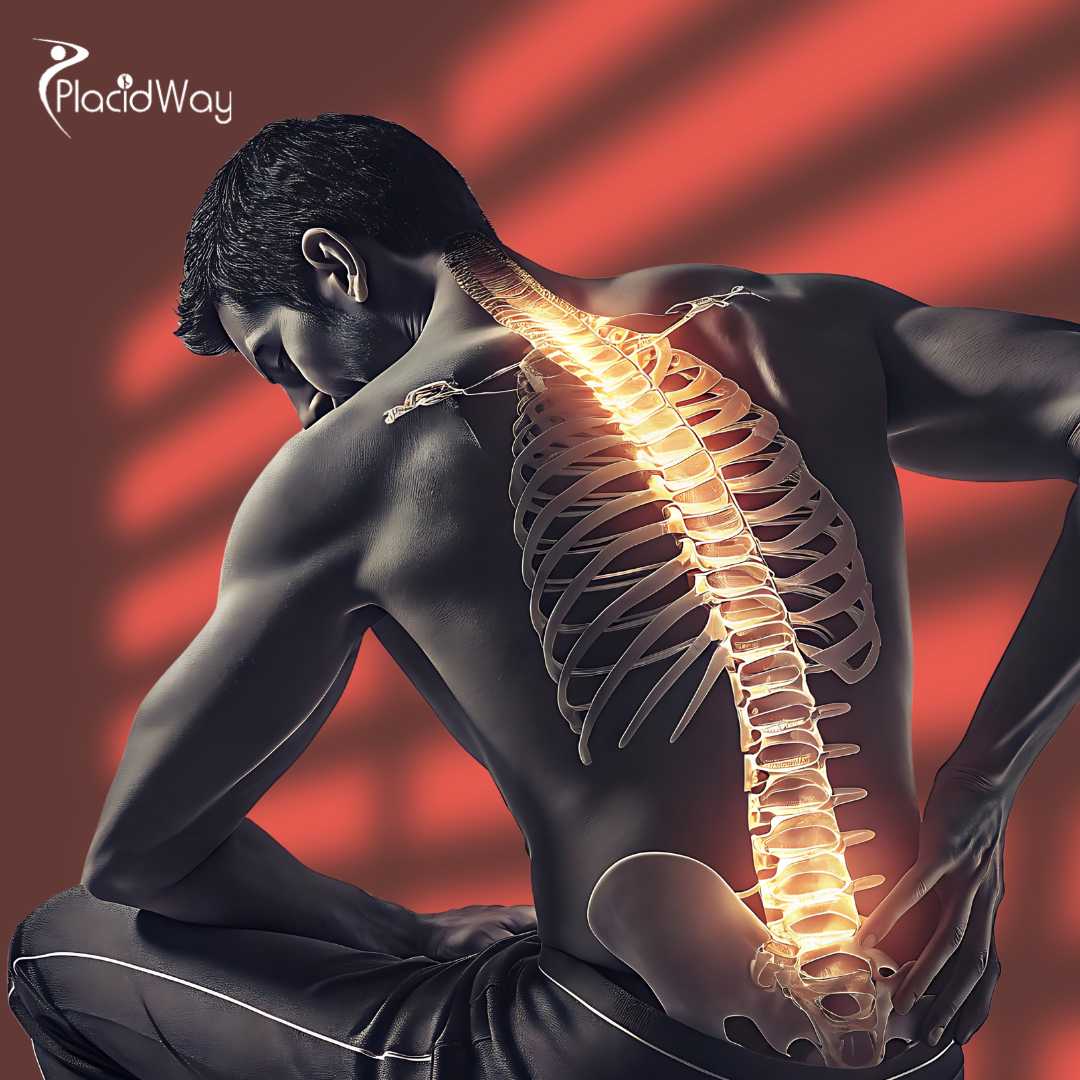.png)
If you're dealing with chronic knee pain, you know how frustrating it can be. That "bone-on-bone" grinding sensation, the stiffness every morning, and the pain that stops you from walking, playing golf, or just keeping up with your grandkids—it can seriously impact your quality of life. For years, the only long-term solution offered for severe knee osteoarthritis was a total knee replacement, a major surgery with a long, painful recovery. But what if you could repair the joint instead of replacing it?
This is where stem cell therapy for the knee comes in. It's a groundbreaking medical field that focuses on healing from within. This treatment uses your own natural repair cells to target the source of the problem: the damaged cartilage and chronic inflammation inside your knee joint. It's not a temporary fix like a cortisone shot, which just masks the pain. Instead, it's a biological approach designed to fundamentally change the environment of the joint, reduce pain, and restore function, potentially delaying or even eliminating the need for surgery.
You've probably heard stories about it, but you likely have a lot of questions. Does it really work? Is it safe? How much does it cost? And most importantly, am *I* a good candidate? This guide is here to answer all your most pressing questions about stem cell therapy for knee arthritis, giving you clear, expert information to help you decide if this is the right path for you.
What is stem cell therapy for knee arthritis?
When you have osteoarthritis, your knee is in a constant state of "pro-inflammatory" chaos. This inflammation breaks down your cartilage—the joint's smooth, protective cushion. Your body can't repair the damage fast enough.
Stem cells, specifically Mesenchymal Stem Cells (MSCs), are powerfully anti-inflammatory. When injected into the knee, they act like a "general contractor" for repair. They calm the inflammation (providing pain relief), release growth factors to nourish and protect existing cartilage cells, and can even recruit other healing cells to the area.
How does stem cell therapy work for the knee?
This multi-pronged approach is what makes it so different from other treatments.
- Reduces Inflammation: The cells immediately calm the inflammatory environment that causes pain and stiffness.
- Protects Cartilage (Chondroprotection): They release factors that prevent your existing, healthy cartilage cells from dying off. This is key to slowing or stopping the progression of arthritis.
- Signals Repair: The growth factors act like a "911 call" to your body's own repair mechanisms, telling them to come to the knee and start rebuilding.
- Potential Regeneration: In the right environment, some of these stem cells may turn into new cartilage cells (chondrocytes), helping to repair the damaged joint surface.
Am I a good candidate for a knee stem cell procedure?
Your doctor will use X-rays or an MRI to determine the severity of your arthritis (often graded 1-4).
- Ideal Candidates: Often have Grade 2 or Grade 3 knee arthritis. They have significant pain and cartilage loss, but there is still a joint space to work within.
- May Not Be Ideal: Patients with severe, "bone-on-bone" (Grade 4) arthritis may have less success, as there is no cartilage left to save. In these cases, a knee replacement might be the only viable option.
- Also Good For: People with specific injuries like meniscus tears or ligament damage (partial ACL/MCL tears) who also have underlying arthritis.
Is stem cell therapy effective for 'bone-on-bone' knee arthritis?
Many patients with severe arthritis who are poor surgical candidates (due to age or other health issues) or who desperately want to avoid surgery may still choose the procedure for its anti-inflammatory and pain-relieving benefits.
It is crucial to have a frank discussion with a regenerative medicine specialist. They will review your imaging to set realistic expectations. For many with end-stage arthritis, total knee replacement remains the most definitive solution.
Stem cell therapy for knee vs. knee replacement surgery?
The comparison really comes down to repair vs. replace.
- Stem Cell Therapy:
- Procedure: A 2-hour, in-office injection.
- Recovery: 1-2 weeks of rest, followed by physical therapy. Most improvement in 3-6 months.
- Risks: Very low (infection, soreness). Uses your own cells.
- Goal: Heal the natural joint, delay or avoid surgery.
- Knee Replacement Surgery:
- Procedure: A 2-3 hour invasive hospital surgery under general anesthesia.
- Recovery: 3-6 *months* of intense, painful rehabilitation.
- Risks: Higher (infection, blood clots, anesthesia complications, implant failure).
- Goal: Remove the diseased joint as a last resort.
What is the cost of stem cell therapy for one knee?
This cost is an all-inclusive, out-of-pocket expense that is not covered by insurance. The price reflects the specialized physician's time for the harvest, the sterile processing of the cells, the expensive, single-use equipment, and the high-level expertise needed for the image-guided injection.
When considering the cost, it's helpful to compare it to the out-of-pocket costs of knee replacement surgery, which can easily be $3,000 to $10,000 *after* insurance through deductibles, co-pays, and uncovered rehab costs.
Knee Arthritis Treatment Cost Comparison (USA)
| Treatment | Average Cost (Out-of-Pocket) | Procedure Type | Recovery Time |
|---|---|---|---|
| Stem Cell Therapy (One Knee) | $4,000 - $8,000 | Minimally invasive | 3-6 months (for full effect) |
| PRP Injection (One Knee) | $500 - $1,500 | Minimally invasive | 4-6 weeks |
| Cortisone Shot (One Knee) | $100 - $300 (Often insured) | Minimally invasive | 1-2 days (temporary relief) |
| Total Knee Replacement | $3,000 - $10,000+ (Deductible/Co-pay) | Invasive Surgery | 6-12 months |
What is the stem cell knee injection procedure like?
- Harvest: The doctor thoroughly numbs an area on the back of your hip (iliac crest). They then use a special needle to draw out a small amount of bone marrow, which is a rich source of your body's stem cells. This part is fast and well-tolerated.
- Concentration: A technician takes your bone marrow sample and places it in a centrifuge, which spins it at high speed. This process separates and concentrates the powerful stem cells and platelets into a few milliliters of injectate, often called Bone Marrow Aspirate Concentrate (BMAC).
- Injection: The doctor numbs your knee. Then, using live ultrasound or X-ray guidance, they precisely inject the stem cell concentrate into the damaged areas *inside* your knee joint.
You are able to walk out of the clinic (though you will need a driver) and go home to rest the same day.
Where do the stem cells come from?
Using your own cells is critical as it means there is zero risk of rejection or allergic reaction.
- Bone Marrow (BMAC): This is the "gold standard" for many orthopedic doctors, as it contains a powerful mix of Mesenchymal Stem Cells (MSCs) and hematopoietic stem cells that are ideal for bone and cartilage.
- Adipose Tissue (Fat): Fat is also an extremely rich source of MSCs. The cells are harvested via a mini-liposuction procedure.
You should be wary of any clinic in the U.S. offering "umbilical cord" stem cells for arthritis. These products are not FDA-approved for orthopedic use and typically contain no living stem cells.
Is the stem cell knee procedure painful?
After the numbing wears off, you can expect the knee to be sore and stiff for 2-5 days. This is a normal, expected "post-injection flare" and is actually a good sign that the cells are starting a healing inflammatory response. This is managed with rest, ice, and Tylenol (not anti-inflammatories).
What is the recovery time for a stem cell knee injection?
This is a biological process, not a quick fix. The cells need time to work.
- Week 1-2: "Take it easy" phase. You will likely use crutches for a few days to a week to un-load the knee and protect the cells.
- Week 2-8: You will start a specific physical therapy program to restore range of motion and gently strengthen the muscles.
- Month 3-6+: This is when the healing peaks. You can return to higher-level activities like hiking, biking, and golf as your pain subsides and strength returns.
Can I walk immediately after a stem cell knee injection?
Your doctor will give you a specific post-procedure protocol. The brief period on crutches is a small price to pay to protect your investment and ensure the best possible outcome.
What is the success rate of stem cell therapy for knees?
Success is highly dependent on proper patient selection. A 50-year-old with Grade 2 arthritis will have a higher chance of success than a 75-year-old with bone-on-bone arthritis.
A successful outcome means reduced pain, improved mobility, and delaying or avoiding the need for a total knee replacement.
How long does stem cell therapy for the knee last?
This is not a temporary fix. The procedure aims to structurally improve the joint and break the cycle of degeneration. While it doesn't stop the aging process forever, it can "turn back the clock" on your knee health for a very long time.
Stem cell therapy vs. PRP for the knee: What's the difference?
Think of PRP as a cup of coffee that gives your existing repair cells a jolt of energy. Stem cell therapy is like bringing in a whole new construction crew with the blueprints and materials to do a major renovation.
For mild knee arthritis or tendinitis, PRP is an excellent and cost-effective option. For moderate-to-severe arthritis and cartilage damage, stem cell therapy is significantly more powerful.
Stem cell therapy vs. cortisone shots for knee pain?
Cortisone provides fast, temporary relief (weeks to months), but the pain always returns. Worse, studies show that repeated cortisone shots can actually damage cartilage and weaken tendons, making your arthritis progress faster.
Stem cell therapy takes longer to work, but the goal is long-term (years) of relief by healing the joint. Most doctors will *not* perform a stem cell procedure if you have had a recent cortisone shot, as the steroid is toxic to stem cells.
Can stem cell therapy help a meniscus tear in the knee?
The old surgical approach was an "arthroscopic clean-up" to trim out the torn meniscus piece (a meniscectomy). However, we now know that removing the meniscus removes the knee's "shock absorber" and dramatically *accelerates* arthritis.
Using stem cells to heal and preserve the meniscus is a much better long-term strategy for knee health.
Am I too old for stem cell therapy for my knee?
The health of your joint (i.e., not being "bone-on-bone") is a much more important factor than your chronological age. A reputable doctor will simply harvest a slightly larger amount of bone marrow from an older patient to ensure they get a sufficient number of cells for the procedure.
How many stem cell treatments will my knee need?
This is not like cortisone, where you need repeated shots. The single, comprehensive procedure (using bone marrow or fat) provides the full regenerative power needed to kickstart the healing process, which then continues for many months and years on its own.
Are there any risks or side effects?
The most common side effect is the 2-5 day post-injection "flare-up" of soreness. When performed by a qualified expert under sterile conditions with image guidance, the procedure is one of the safest in all of medicine.
What should I do to prepare for my knee procedure?
Your clinic will give you a full list of instructions, which usually includes:
- Staying well-hydrated.
- Avoiding blood-thinning supplements like fish oil for a week.
- Arranging for someone to drive you home.
- Preparing to rest and use crutches for the first few days.
Ready to Take the Next Step Away from Knee Pain?
Don't let knee arthritis dictate your life. PlacidWay is your trusted partner for exploring safe, effective, and affordable stem cell therapy for knee arthritis at leading clinics around the world. We provide access to pre-screened, world-class medical experts specializing in regenerative medicine.
Find out if you are a candidate for this life-changing procedure. Contact PlacidWay today for a free, personalized consultation and discover your path to healing!
Stem Cell Therapy Abroad





.png)
.png)



Share this listing